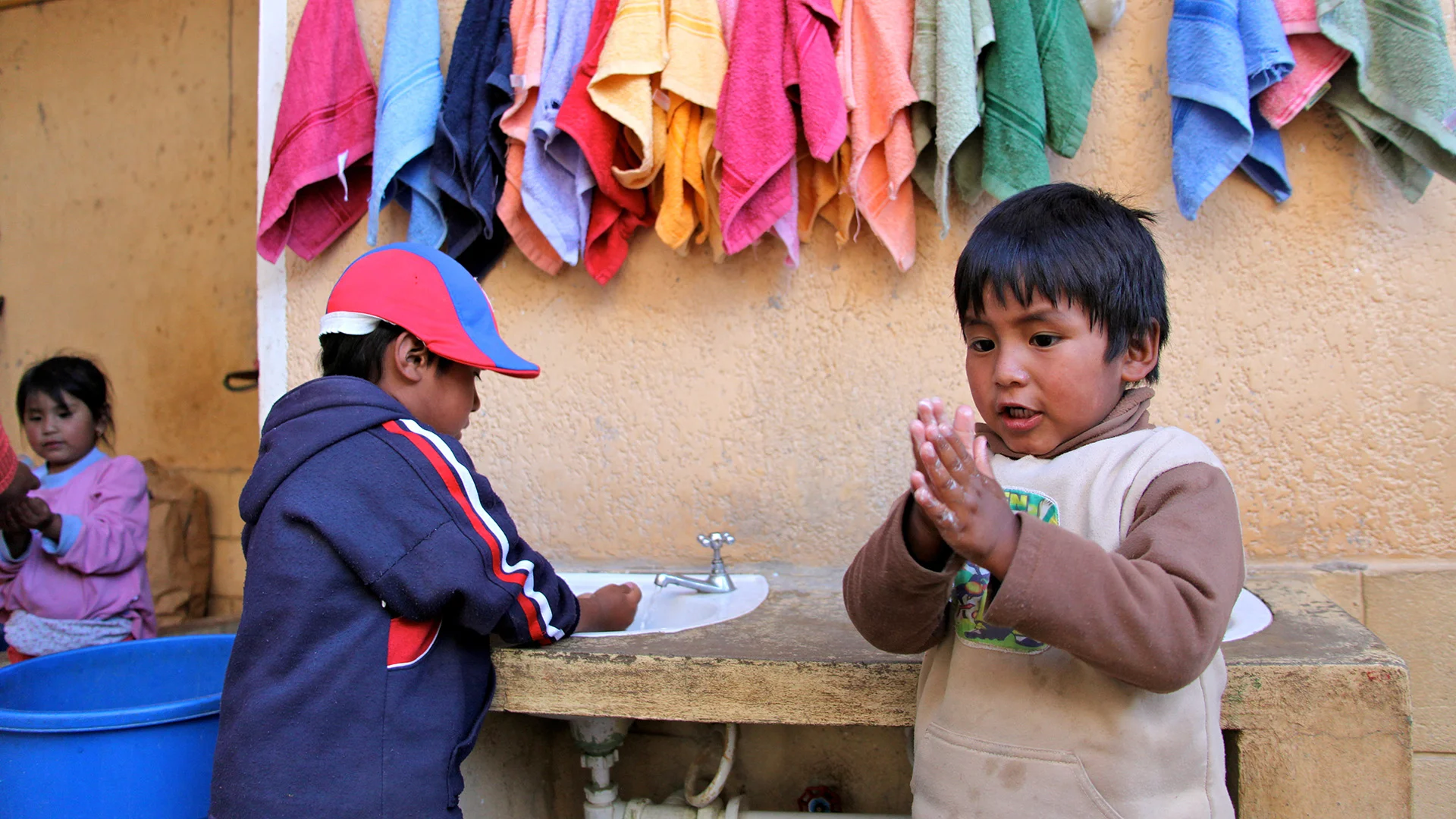During the 2018 Star Weeks campaign, children in Switzerland and Liechtenstein collected money to provide schools in El Alto, Bolivia, with safe drinking water and functioning latrines.
The situation
El Alto is located in Bolivia’s highlands at around 4,100 meters above sea level, making it the highest major city in the world. 76 percent of the population belong to the indigenous Aymara ethnic group. Rapid population growth in recent decades means El Alto now has around one million inhabitants, and this has presented the city with huge challenges.
One problem in particular is the water supply and sewage system. More than a quarter of schools and kindergartens are unable to provide clean drinking water and functioning sanitary facilities, or only to a limited extent. Girls are disproportionately affected, as many stay home from school during their menstrual periods. Poor hygiene conditions also cause many children to contract diarrhea, respiratory infections, and skin and eye inflammations – problems which then keep them out of school.
What UNICEF has achieved thanks to your help
The program aimed to improve the health of school children – and therefore their ability to learn – by reducing the spread of disease caused by inadequate hygiene or contaminated drinking water. It included the construction or repair of school latrines as well as teacher sensitization on the rules of personal hygiene so that these can be passed on to students.
In concrete terms, the money collected in Switzerland and Liechtenstein was used to build or repair latrines at 15 elementary schools and 5 day-care centers. It included the installation of 98 latrines for girls, 92 for boys, 11 unisex facilities and 32 for teachers. Almost 10,000 children and adolescents benefited.
In addition, more than 100 schools and day-care centers were provided with training programs to promote good hygienic habits, including menstrual hygiene.
